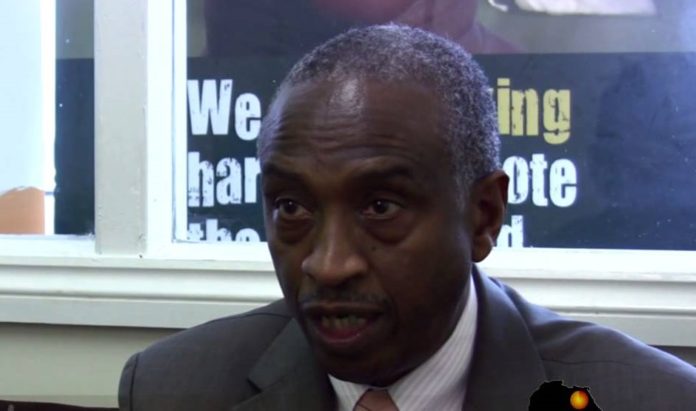PRESS RELEASE
The Rwandan people, traumatized by war and crushed by an overload of many socio-economic problems borne out of tyrannical rule, have turned to churches or Mosques in big numbers as their last line of defence against total hopelessness. New independent churches, mainly Pentecostal, have become the only place where citizens can safely express their grievances to someone, God, without fear of arrest. In fact, churches have shielded the regime from popular revolt because by turning their exasperation to God for a solution, they have forgotten to put the regime to task over policies that have brought them the misery that they are experiencing.
These churches have mushroomed and now outnumber the main stream churches, because the latter have decided to either to ignore the citizens’ suffering or be supportive of the regime contrary to their mission to defend without fear or favour the rights of the poor and the oppressed. For example, there are 1300 or more churches in the capital of Kigali of 1.2 million i.e. an average of one church per 1000 people and 2,194 churches operating in only 4 districts of the Northern Province: Musanze, Gakenke, Rulindo and Burera. Seven hundred and fourteen (714) and seven hundred and seventy-five (775) were closed in Kigali and Northern Province respectively. Six pastors have been arrested, accused of “masterminding” a ploy to disobey the Rwandan government’s order. The government has also banned the use of loud speakers by Mosques during Muslim call for prayers in the capital Kigali.
Only if the regime were not driven by the instinct of force or coercion to manage social issues, it would have realised that the churches have helped people deal with trauma caused by genocide, war crimes and crimes against humanity and by violent political repression. Faith in God has also helped Rwandans face peacefully their socio economic problems that include: extreme poverty, 63% of the population still live below poverty line , defined by the World Bank as less than $1.25 a day, child malnutrition, 44% of Rwandan children suffer from stunting; generalfood insecurity, poor quality education for the poor, high unemployment, i.e. an estimated 42% of young people, who also constitute nearly 40% of the population, either unemployed or underemployed in the subsistence sector; 30-40% of the budget – is still coming from aid, crackdown on freedom of speech, assembly and association. They are also overburdened by unexplained taxation, including tax even to bail out arrested officials like General Karenzi in London. They are shocked by the lavish life styles of those in power or those close to them while most people are wallowing in poverty.
President Kagame sits at the top of the pyramid of the Rwandan super-rich who are out of touch with the lives of the poor. For example, when President Kagame puts to task his officials about food shortage and chronic child malnutrition, he seems to be shocked and unaware that the chronic famine is due to a bad agricultural policy of his government. He calls to mind the reaction of Queen Marie Antoinette France before the French revolution of 1789 when she was told that peasants were experiencing famine. It is alleged that when she was told that “the peasants had no bread to eat”, she answered: “why don’t they eat cakes” instead. President Kagame seemed to suggest that the solution to chronic famine was for the officials to leave their offices and go to talk to peasants to ask them why they are hungry, and children stunted. The officials are more likely to be harsher on the citizens to enforce the bad policies dictated from above.
The war on mainly independent churches, which is led by the political crack unit, the Rwanda Governance Board, followed a complaint by President Kagame, during senior officials retreat 26th February- March 2, 2018, over the mushrooming of churches that he called was a “mess”.
He wondered whether “these were boreholes that give people water” or “factories” to provide jobs. The CEO of this unit, Prof. Anastase Shyaka, was obliged to bypass the outcome of his proposal to the law reform commission relating to “streamlining the registration, leadership, management and minimum standards for places of worship”. President Kagame’s displeasure was enough for him to dump the idea legal and administrative processes.
In making those remarks, the President forgot that these churches have done more for him than providing boreholes or building factories by shielding him from the fury of the citizens on the issue accountability for bad policies and misallocation of resources responsible for their misery. For example, if they did not turn to God, they could ask him about the misallocation of resources and why he squanders taxpayer’s money. A quick estimate for only 11 trips that made by President Kagame between January- May 2014 put the cost of these trips to US$6million (Rfr4billion) footed by the taxpayer . By the end of the year he had made 28 foreign trips including 8 trips to the US. They would ask him why he spends so much money on hotel bills when he goes abroad. For example, during his trip to New York for the UN general Assembly in September 2011, he is reported to have stayed in a $12,000 a night hotel which came to $20,664.50 when taxes and charges were included , equivalent of 33 years of wages for a starting primary school teacher whose monthly salary is FRW 44000 equivalent of $51 us dollars. It is equivalent to the daily income of 16531 poor Rwandans ($20664.50/1.25). They could ask him to reduce the number of his four personal Range Rover Sentinels, whose total cost is 2 million US dollars to 3 and put the $500,000 for the 4th car, to build more classrooms to reduce congestion and to buy desks for pupils. For example Children in some areas are asked to bring their own desks or study standing, in other places as many as 268 children are crammed in two rooms. Alternatively, the $500,000 could cover one-year bursary (10 months) for 1250 university students, which is $ 40 (FRW 3500) .
The clampdown on places of worship has demonstrated once again the totalitarian nature of the regime, wanting to control everything including how people pray. But as the UN Special Rapporteur on the rights to freedom of peaceful assembly and of association, Maina Kiai highlighted in his June 2014 report address to the Human Rights Council, “a society without room for critical voices to speak freely and peacefully is unsustainable”. Indeed, the United Nations Declaration of human rights warns that “it is essential, if man is not to be compelled to have recourse, as a last resort, to rebellion against tyranny and oppression, that human rights should be protected by the rule of law”.
It is the very considered view of the Rwandan political opposition platform that the impunity that the Rwanda government has enjoyed for so long over its repression could have already created a one-way road towards another implosion of the Rwandan society. By closing the churches, the regime has opened new floodgates of discounted people, who could potentially be ready to die fighting for their religious values. They are joining a growing number of discontented groups across ethnicity, faith, social profession and status.
Only those bankrolling the regime can made a difference in helping Rwandans stop another descent to hell, by reining on President Kagame to accept dialogue with the opposition, release all political prisoners and prisoners of conscience and end torture as well as enforced disappearances.
Done in London on March 27, 2018
Justin Bahunga
Chair Diplomacy Commission – P5-Platform
Phone: +44-7988-883-576






























































